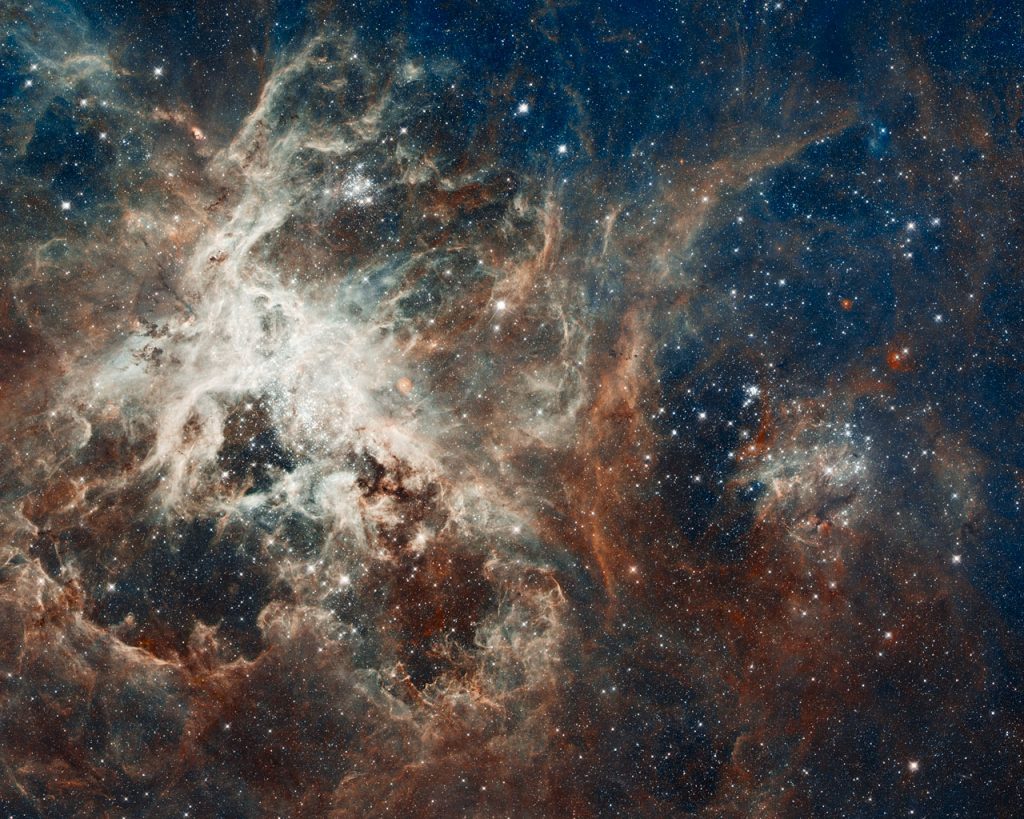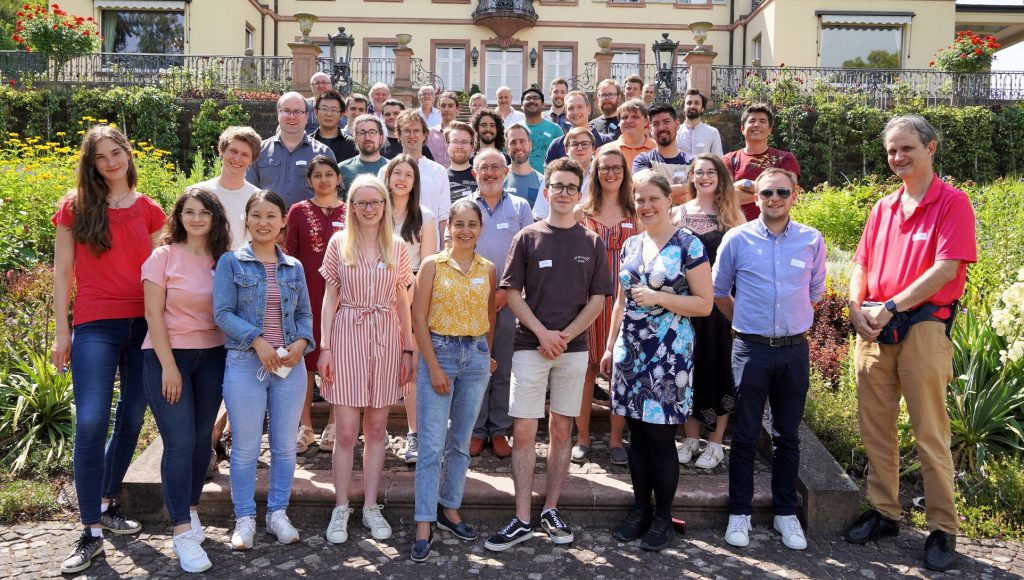Massive stars, black holes and binaries
SET group at HITS organized the first presence meeting of VFTS & Friends

It all started with an “ESO Large Programme”: In 2008, the VLT-FLAMES Tarantula Survey started mapping massive stars with Chris Evans as PI (then Edinburgh, UK). The program has been extremely successful. After all the observational data had been analyzed and the report had been published, the researchers involved decided to continue collaborating. They adopted the title of the ESO program under the acronym “VFTS”.
After two online workshops, the first meeting took place in presence at Studio Villa Bosch in Heidelberg from 20 to 22 June 2022, coordinated and organized by HITS group leader Fabian Schneider (Stellar Evolution Theory Group; SET). Observers, data analysts, and modelers came together from seven countries and a number of institutes, among them Armagh Observatory in Northern Ireland, the Astrophysical Institute of the Canary islands in Spain, the Max Planck Institute for Astrophysics in Garching (Germany), or the University of Amsterdam (Netherlands). The event was designed in an open format to analyze the current state of research and to initiate new developments. The meeting also serves as a platform for young scientists. The program included new insights into massive stars, black holes and binary star systems.
The VLT-FLAMES Tarantula Survey was an ESO Large Programme that has provided a rich, legacy dataset for studies of both resolved and integrated populations of massive stars. Initiated in 2008 (ESO Period 82), the Fibre Large Array Multi Element Spectrograph (FLAMES) was used to observe more than 800 massive stars in the dramatic 30 Doradus star-forming region in the Large Magellanic Cloud. The survey´s PI was Chris Evans, HITS researcher Fabian Schneider was one of the collaborators. A summary of the survey with the latest results was published in 2020.
About HITS
HITS, the Heidelberg Institute for Theoretical Studies, was established in 2010 by physicist and SAP co-founder Klaus Tschira (1940-2015) and the Klaus Tschira Foundation as a private, non-profit research institute. HITS conducts basic research in the natural, mathematical, and computer sciences. Major research directions include complex simulations across scales, making sense of data, and enabling science via computational research. Application areas range from molecular biology to astrophysics. An essential characteristic of the Institute is interdisciplinarity, implemented in numerous cross-group and cross-disciplinary projects. The base funding of HITS is provided by the Klaus Tschira Foundation.
